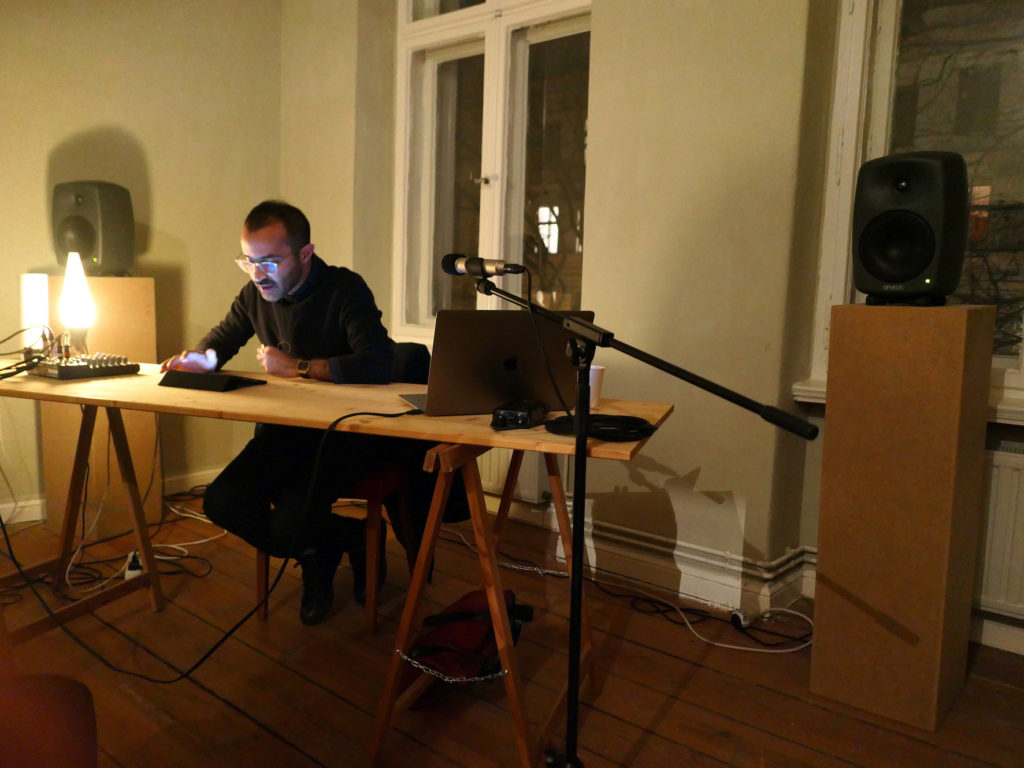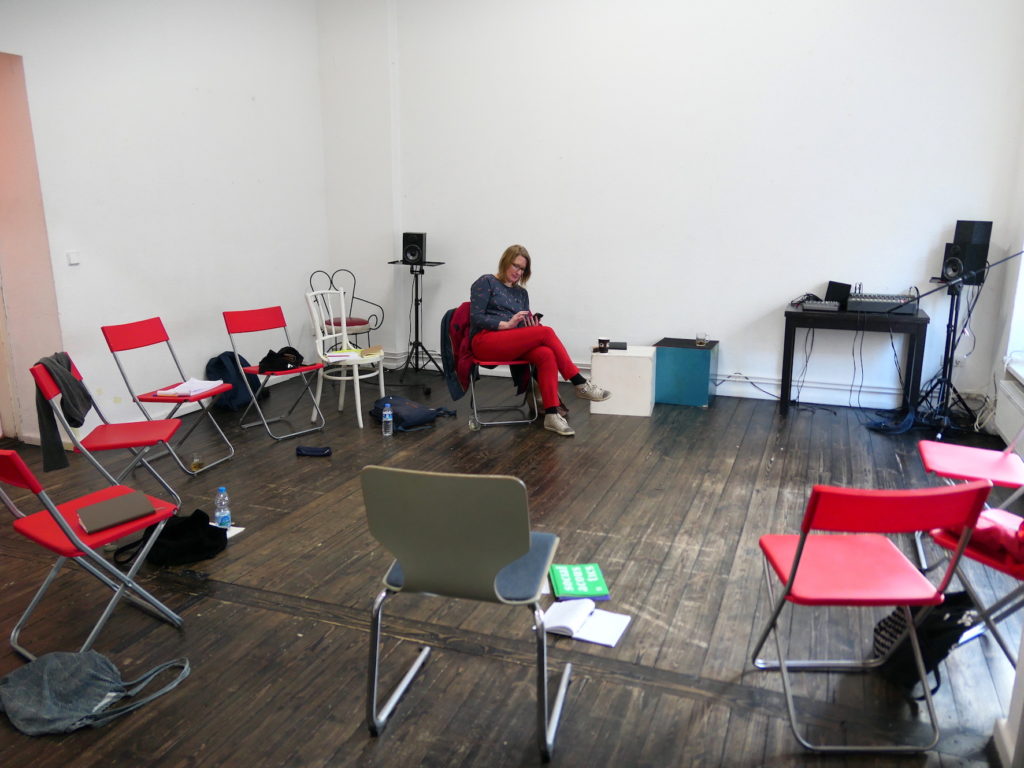Events / Audible Intimacies: Migrant Saints in a Godless City / lecture by Omar Kasmani
2020-02-27 - 07:30 PM / Errant Bodies Studio, Berlin
Partners: Savvy Contemporary
We listen to sonic fragments recorded during a Sufi ritual of remembrance in Berlin. We sense how in the invisible contingency of sound – a sonic mise-en-scène as it were(1) – migrants come close to removed saintly figures, places and times. To be embroiled in sound such, that is the in-between and the with-each-other – what Salome Voegelin has called interbeing(2) – is to embrace affect’s relational poignancy, its adeptness to resist the partitioning of time, space and bodies, its capacity for suturing worlds.
Religious sounds – especially for those believers affected by
displaced geographies and geo-chronologies of migration – offer forms of critical intimacy with sacred histories. Equally so, sonic
scenes in religious ritual offer a bracketed
condition of political possibility in the present. I invite an intimate listening
of an Islamic ritual as a way to appreciate how religion’s ephemera, in
particular its sonic-spectral iterations bear the potential to bend norms of
religion’s visibility in the urban, thus also elude its surveillance and
governance. I am interested in how sound’s obfuscating presence survives beyond
the ritual and gestures at the limited ways in which migrant/ minority religion
might test, even kink normative orders of a so-called godless city.
1. Kasmani, Omar. 2017 b. “Audible Specters: The Sticky Shia Sonics of Sehwan”. History of Emotions - Insights into Research, October 2017, DOI: 10.14280/08241.54
2. Voegelin, Salomi. 2019. The Political Possibility of Sound: Fragments of Listening. New York: Bloomsbury, p. 88, 92.
Omar Kasmani is a social-cultural anthropologist and a post-doctoral Research Fellow at Affective Societies at Freie Universität, Berlin. His work pursues ideas of be/longing, queer futurities and public intimacy – a research practice that is best read across the study of religion, queer and affect theory. Born and raised in Karachi, Pakistan, Omar is a Berliner-by-love. He has co-edited the book Muslim Matter (Revolver Publishing 2016) and his currently working on his first monograph on saintly intimacy and unstraight futures in Pakistan.

